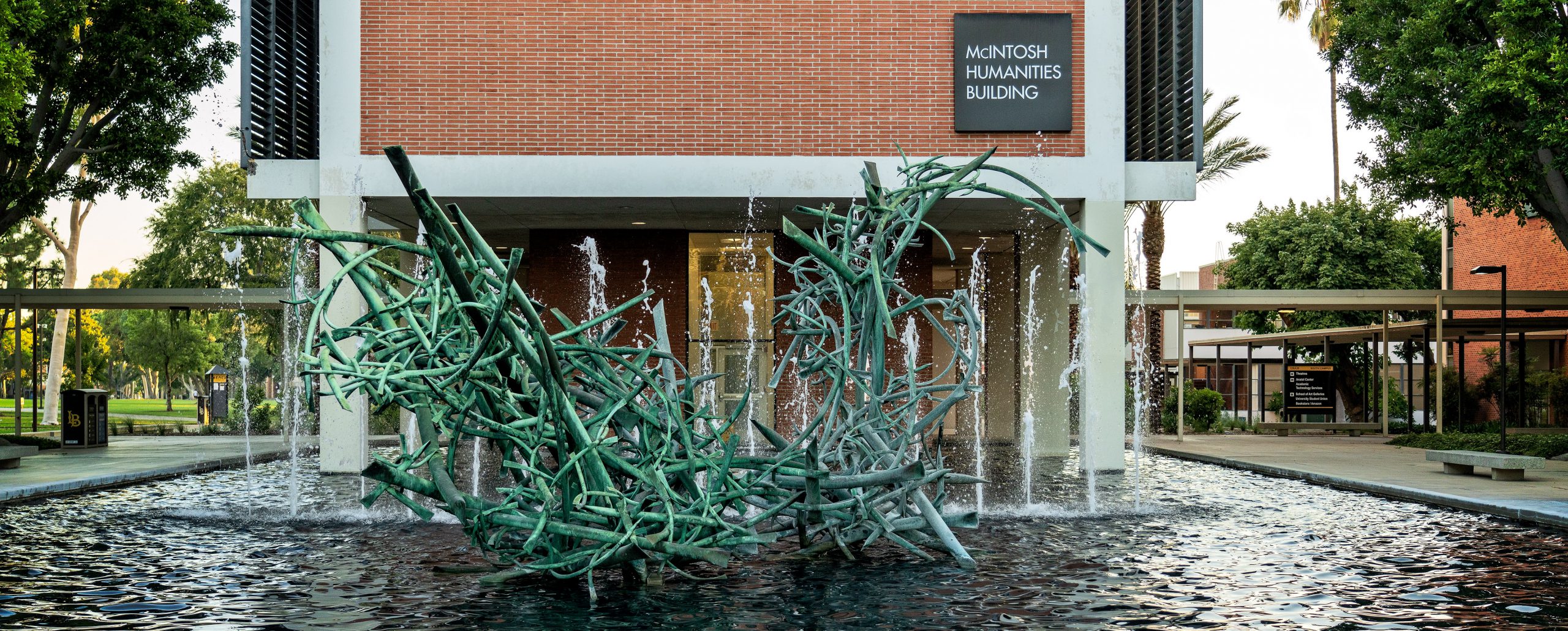Four Students in the Department of Psychology Present Posters at the NASA Ames’ Summer 2011 Higher Education Poster Symposium
October 16, 2011Four students from the Department of Psychology presented posters at the NASA Ames’ Summer 2011 Higher Education Poster Symposium in August. They also completed an 8-week internship in the Flight Deck Display Research Lab at NASA Ames Research Center.
Sabrina Billinghurst presented a poster titled, “Should Students Learn Air Traffic Management Skills Before Nextgen Tools?” Her poster addressed a training study that examined methods for introducing new tools to air-traffic controllers. Those involved in the training study, one of which was Sabrina, wanted to know whether it was better to teach new tools before or after learning general air traffic management skills. Sabrina recently presented the paper that accompanies this poster at the Human Factors and Ergonomic Society’s Annual Conference.
Sabrina is in the process of completing her fourth semester as a graduate student of the MS Human Factors Psychology program. Upon graduating, Sabrina looks forward to beginning a career that allows her to work with visual displays.
“Though NASA is most known for their space exploration, NASA is about all types of innovation. Whether they are creating a new air transportation system, or teaching astronauts how to control their own body temperature, they discover new technology in many different domains. When I graduated with a BA in Psychology, I never imagined that I could apply my education to the research performed at NASA. My internship experience at NASA Ames has definitely broadened my perspective of the career opportunities available to me. Now I believe that anyone who is passionate about invention and exploration of new technology can work at NASA.” – Sabrina Billinghurst
Kevin Monk presented a poster titled, “The Effect of Automation on Pilot Situation Awareness.” His poster reviewed quantitative data that supported the notion that automation has a negative effect on pilot situation awareness.
Kevin is in the process of completing his first semester in the MS Human Factors Psychology program. His academic and professional interests include usability and human-computer interaction.
“I worked as a pseudo-pilot for the WATERSHED simulation in the Flight Deck Display Research Lab at NASA Ames. My experience furthered my knowledge of the Multi Aircraft Control System used in simulations, as well as of different tools in the cockpits. This knowledge shall strengthen my qualifications for a possible career in aviation psychology. – Kevin Monk
Corey Morgan presented a poster titled, “An Investigation into the Potential Sources of Interference in SA Probe Techniques.” His poster was an investigation into sources of operator interference when using different techniques for measuring Situation Awareness (SA).
Corey is in the process of completing his third semester in the MS Human Factors Psychology program. His academic goals include publishing and presenting at one or more conferences before graduating. In regard to his professional goals, Corey wants to be employed by a company doing work in aviation.
“One of the main reasons that the internship was informational for me was that it helped show how the work done in our CHAAT (Center for Human Factors in Advanced Aeronautic Technologies) lab is very similar to research being done at a top governmental research institution. I also really enjoyed the experience because it strengthened my academic interests. Before participating in the internship, I was moderately interested in aviation and the issues surrounding it. After the internship, having had the chance to tour the NASA Ames Research Center and see the types of work that others in the same area are working on, I am much more interested in and happy with what I am doing.” – Corey Morgan
Gregory Morales presented a poster titled, “Situation Awareness, Workload, and Performance in Midterm NextGen: Effect of Dynamic Variations in Aircraft Equipage Levels.” His poster addressed a study on mixed equipage airspace, where new air traffic management technologies are implemented for only a portion of the aircraft. It also highlighted how changes in the percentages of equipped aircraft affect air traffic controllers’ situation awareness, workload, and performance.
Gregory is in the process of completing his first semester in the MS Human Factors Psychology program. His interests relate to stimuli-response compatibility as well as to visual displays and controls. His goals are to continue research in the CHAAT lab while remaining open to other research opportunities.
Written by Cortney Smethurst




